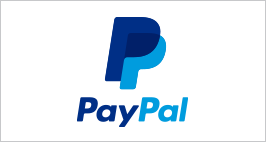Bitcoin 1, PayPal 0: PayPal Fined $10 Million for Deceptive Practices
 PayPal has been fined $10 million for engaging in deceptive practices.
PayPal has been fined $10 million for engaging in deceptive practices.
The crux of their deception was enrolling customers into a credit program without their consent, creating a situation where people were on the hook for credit they’d never asked for. As you know, any credit program can have an effect on your credit score. The action was carried out by the Consumer Financial Protection Bureau, an agency created in 2011 for the express purpose of monitoring financial practices at the consumer level. CFPB Director Rich Cordray said in a statement:
The Bureau alleges that PayPal lured in consumers to this product with deceptive advertising, signed up people without them knowing it, and then mishandled billing disputes when they arose. This kind of conduct has no place in the consumer financial marketplace. Under our proposed order, PayPal would return the $15 million that it illegally took from consumers and it would pay a $10 million penalty for its wrongful actions.
You read that right. For once, the government is going so far as to force the company in question to give back the money it took unrighteously. Another $10 million will go to the government to ensure that PayPal has learned its lesson. The government was prepared to carry the case into court but reached a settlement it found suitable beforehand. A judge will have to sign off on the deal before it can be initiated, with a fund being set up to re-compensate affected users.
Also read: Bitcoin is the Future: PayPal Changes Terms of Service to Take Your Content
Younger Consumers Don’t Like Credit
Credit is something that consumers have become allergic to in the years since the Global Financial Crisis, most preferring to do without it when possible, according to one study. The younger generations have no interest in owing money to banks that might be unstable or might lose their mortgage in a restructuring, or forget they made payments and try to repossess.
These things and more happened to consumers in the early 2000s, and this generation watched it with wide eyes, learning more about the financial system than previous generations ever needed to know. Life might be a bit more difficult sometimes without credit cards and loans, but it can also be simpler, knowing you owe no one.
There is a solution to things like PayPal and credit cards which does not require you to sacrifice your privacy and which will not enroll you into any credit program you didn’t opt for. It’s called Bitcoin, of course, and millions of people use it every day for remittances.
More and more businesses are accepting it, and there are solutions already in place which will allow those businesses to lock in their value without necessarily dumping the coins onto the market.
What cryptocurrency offers is not another barrier between you and your money. What cryptocurrency offers is direct transfer of value between parties, with no middle man. The network itself is not free to run. Indeed, it is very expensive, but there is no singular party responsible for this. Millions of miners confirm transactions and ensure that your money is safe, and to date the Bitcoin network has never been hacked.
So if you want to avoid a situation like getting roped into a PayPal Credit scheme without even knowing it’s happening, consider Bitcoin.